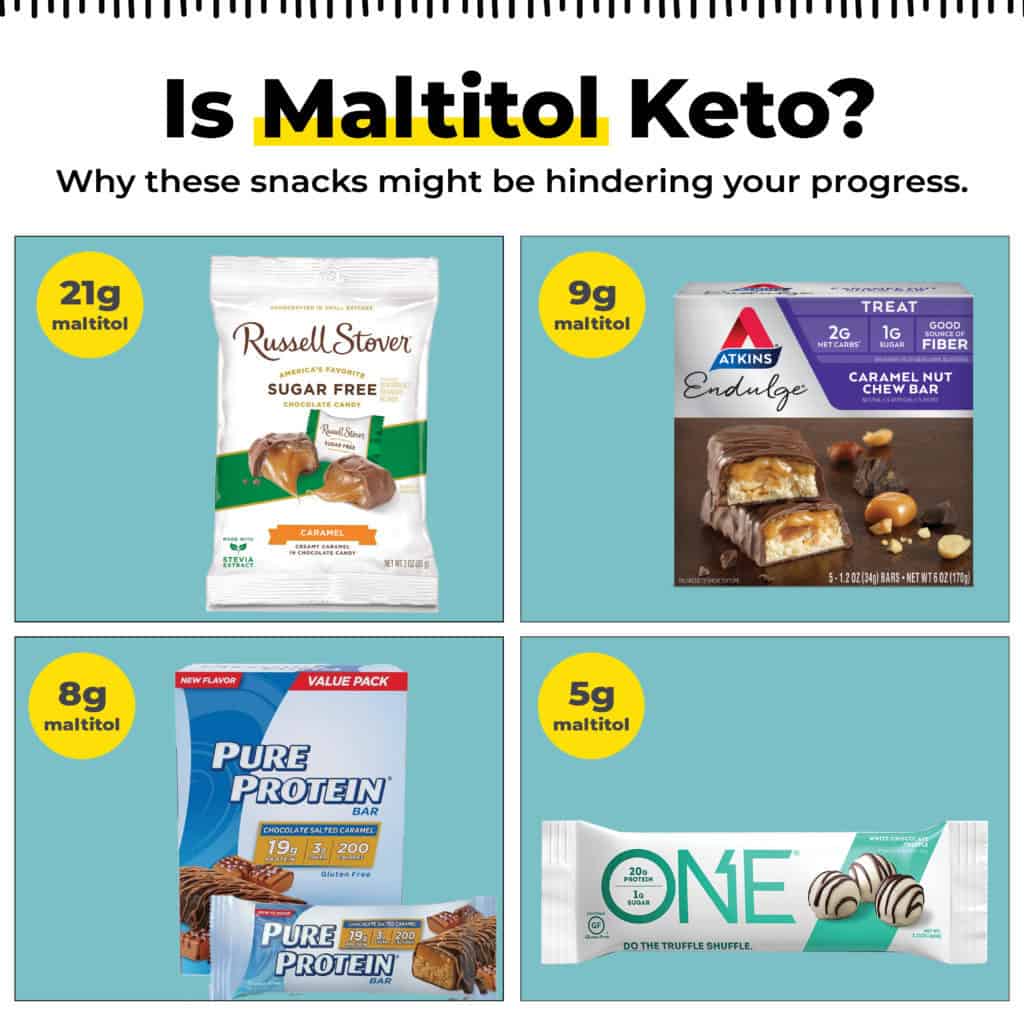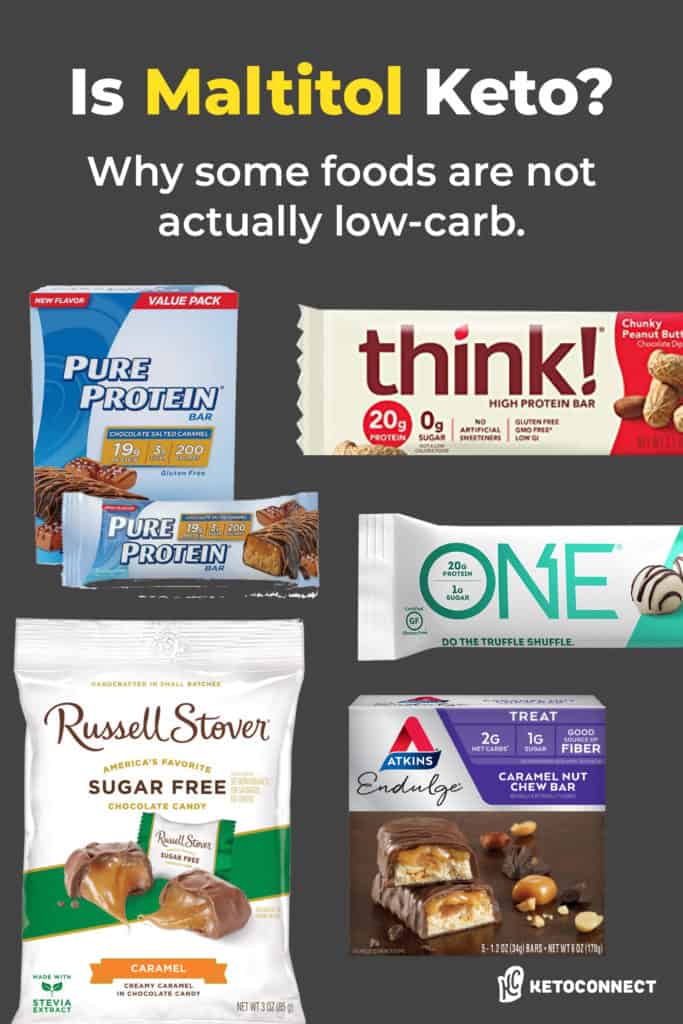Keto products make life easier when you’re craving something sweet, but what happens when they’re sweetened with Maltitol?

Is Maltitol Keto?
For hundreds of years, people have used low-carb diets to treat diabetes, epilepsy, and help with weight loss. When you cut carbs from your diet, it forces your body to burn fat for fuel, which is a much slower, more efficient source of energy.
Natural sweeteners like stevia and monk fruit are completely zero-carb and zero-calorie, making them great sugar substitutes on a keto diet, but Maltitol has some serious drawbacks.
What is Maltitol?
Maltitol is a sugar alcohol or polylol. Sugar alcohols are carbohydrates that partially resemble sugar and alcohol, but the human body can not absorb them, making them low-calorie and low-carb.
Sugar alcohols naturally occur in fruits and vegetables, but they are also commercially produced from starches and sugars.
Common keto sugar alcohols
- Erythritol
- Sorbitol
- Xylitol
- Isomalt
Since Maltitol is 90% as sweet as regular table sugar, it is commonly used in “Sugar-Free” candy and baking, but there are various reasons to avoid this deceiving diet food, especially if you’re on a keto diet.
Is Maltitol Keto?
When choosing keto sweeteners, you want to look for zero-carb options that are low in calories and have a low Glycemic Index Score (GI score).
The Glycemic Index is a ranking system for carbohydrates and how they effect blood glucose levels.
- White bread: GI Score 75
- White table sugar: GI Score 65
- Maltitol Syrup: GI Score 52
- Maltitol Powder: GI score 35
- Erythritol: GI Score 0
The Glycemic Index is not the most accurate way of testing how a food effects blood sugar levels on a keto diet, which is why Matt and Megha, tested the sweetener for themselves in this video using a blood glucose meter.
Maltitol Increases Blood Glucose
After eating 50 grams of maltitol syrup, Matt & Megha’s blood sugar levels went up 40 points in just 30 minutes! These results show why this sugar alcohol is a major no-no on a keto, low-carb, or diabetic-friendly diet.
Laxative Effects
Not only does this sweetener raise your blood sugar almost as much as table sugar, but it also has laxative effects. Consuming more than 40g of Maltitol can cause gas and diarrhea on keto.
Misleading Foods Containing Maltitol
Always read the labels of “sugar-free”, “keto-friendly” products to make sure they don’t contain Maltitol syrup since it will hinder your keto diet. Manufacturers still advertise these products as low-carb, even those they increase blood glucose.
The Best Keto-Friendly Sweeteners
Luckily, there are plenty of keto-friendly sweeteners to choose from that are truly zero-carb, zero-calorie and have little to no effect on blood glucose levels.
- Liquid Stevia (Natural Sweetener)
- Monk Fruit (Natural Sweetener)
- Allulose (rare sugar)
- Erythritol (Sugar Alcohol)
- Sucralose (Artificial Sweetener)
- Aspartame (Artificial Sweetener)
Summary
Maltitol is NOT safe for the keto diet even in moderate amounts. It is not as ideal as other sugar alcohols. You should be careful with packaged foods that contain maltitol, as these may have other hidden carbs.
The bottom line
Maltitol is a sugar alcohol that increases blood sugar almost as much as regular table sugar and should be avoided on a keto diet.
- Sugar alcohols usually don’t get absorbed or metabolized in the body. While most sugar alcohols are zero-carb, zero-calorie, Maltitol increases blood sugar levels.
- Matt and Megha tested their blood glucose after eating Maltitol and it spiked 40 points in just half an hour.
- May cause diarrhea and gas since it is a laxative.
- Many manufacturers use it as a sweetener and claim their products are low-carb, which is misleading.
- There are plenty of natural keto sweeteners you can use instead that won’t hinder your weight loss results.




